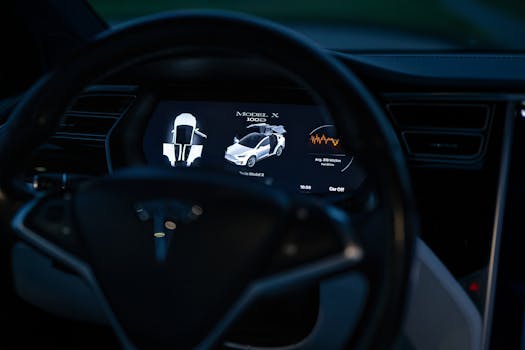Automotive marketing plays a pivotal role in shaping consumer behavior and preferences in the United States. This dynamic field encompasses a range of strategies and techniques aimed at promoting vehicles and services effectively.
In recent years, automotive marketing has evolved significantly. Factors such as technological advancements and shifts in consumer attitudes have greatly influenced marketing approaches within the auto industry.
As car manufacturers and dealerships seek to capture market share, understanding the latest trends and effective strategies is crucial. This article delves into various aspects of automotive marketing, providing insights for industry professionals and enthusiasts alike.
The Importance of Branding in Automotive Marketing
Branding is a cornerstone of automotive marketing. A strong brand identity can significantly impact consumer perception and loyalty in a competitive market. Companies must focus on their unique selling propositions.
Effective branding distinguishes a company from its competitors. Automakers often utilize storytelling and emotional connections to foster positive brand associations among potential buyers.
Moreover, recognizable branding enhances customer recall during the purchasing decision process. Consumers gravitate toward brands that resonate with their values and lifestyles, making branding essential.
In addition, branding extends to the design and aesthetics of vehicles. A distinctive design contributes to a brand’s identity, further solidifying its position in the market and making it memorable.
Ultimately, a well-executed branding strategy creates trust and credibility. As consumers become more discerning, strong branding can lead to repeat purchases and long-term loyalty.
Digital Marketing Strategies for Automotive Brands
Digital marketing strategies are increasingly vital for automotive brands aiming to reach potential customers online. With internet usage on the rise, leveraging digital platforms has never been more important.
Search Engine Optimization (SEO) plays a critical role in enhancing visibility. Properly optimized websites can attract organic traffic, helping potential customers find the information they seek easily.
Social media marketing is another essential component. Platforms like Facebook and Instagram allow brands to engage with consumers personally, showcasing new models and building relationships that encourage brand loyalty.
Email marketing also remains effective in nurturing leads. Regular newsletters and promotions keep potential buyers informed about the latest offers, ultimately driving traffic to dealerships and websites.
Additionally, content marketing can enhance brand credibility. By providing valuable information such as car maintenance tips and buying guides, brands position themselves as trusted resources in the automotive industry.
Understanding the Customer Journey in Automotive Marketing
Mapping the customer journey is essential for automotive marketers. This process involves understanding the various stages a consumer goes through before making a purchase decision.
Initially, consumers may begin with awareness, influenced by advertising and online research. Marketers focus on creating engaging content that captures attention during this pivotal stage.
Following awareness, consumers enter consideration, evaluating options based on their preferences. Marketers must provide detailed information, comparisons, and reviews to assist buyers in making informed decisions.
Upon deciding to purchase, consumers often look for nearby dealerships. Being easily accessible through online listings and local searches can significantly enhance a brand’s chances of closing a sale.
Finally, post-purchase engagement ensures customer retention. Follow-up communication, satisfaction surveys, and loyalty programs encourage customers to return for future vehicle needs, building a lasting relationship.
The Role of Social Proof and Reviews in Automotive Marketing
Social proof significantly influences automotive marketing strategies. Peers’ opinions and online reviews can sway potential buyers, making it crucial for brands to manage their reputations.
Positive reviews foster trust, while negative feedback can deter customers from considering a purchase. Thus, brands must actively monitor and respond to reviews across platforms.
Incorporating customer testimonials in marketing materials showcases real-life experiences. Sharing success stories helps build credibility and encourages new customers to engage with the brand.
Social media also facilitates the sharing of experiences. Encouraging satisfied customers to post about their purchases creates a community feeling, further enhancing brand visibility and attraction.
Ultimately, leveraging social proof helps inform consumers of the reliability and quality associated with a brand, guiding them through their purchasing journey and enhancing conversion rates.
Emerging Technologies Shaping Automotive Marketing
Emerging technologies are revolutionizing automotive marketing practices. As innovation continues to permeate the industry, brands must adapt to leverage new tools and platforms.
Virtual reality (VR) and augmented reality (AR) are creating immersive experiences that allow customers to interact with vehicles virtually. This dynamic interaction enriches the buying experience.
Artificial intelligence (AI) is another game-changer, enabling personalized marketing approaches. AI-driven algorithms can analyze consumer behavior, tailoring advertisements to specific audiences effectively.
Chatbots are enhancing customer service capabilities by providing instant responses to inquiries. This instant communication improves user experience and fosters a sense of accessibility.
Data analytics plays a crucial role in refining marketing strategies. By analyzing consumer data, brands can better target their audiences and optimize campaigns for maximum impact.
Marketing to Millennials and Gen Z
Marketing to Millennials and Gen Z requires a deeper understanding of their unique preferences. As tech-savvy consumers, these generations value authenticity and digital engagement.
These consumers often rely on digital channels for research, making online presence critical. Brands must ensure their websites are user-friendly and mobile-optimized to cater to these audiences.
Additionally, sustainability is a major concern for younger buyers. Automotive brands that prioritize eco-friendly practices in their marketing are more likely to appeal to eco-conscious consumers.
Engaging storytelling is essential to resonate with these generations. Brands that convey their missions and values compellingly will capture Millennials’ and Gen Z’s attention more effectively.
Finally, leveraging influencers can enhance brand credibility among younger audiences. Partnering with relatable figures helps build an authentic connection, fostering trust and interest in the brand.
Conclusion
Understanding automotive marketing is essential for success in this competitive industry. By embracing branding, digital strategies, and emerging technologies, brands can effectively reach and engage their target audiences.
Additionally, recognizing the importance of social proof and adapting to changing consumer preferences can lead to improved customer retention and conversion rates.
In the ever-evolving landscape of automotive marketing, continuous adaptation and innovation are necessary. Brands that remain agile and responsive to market trends will likely thrive and achieve lasting success.


